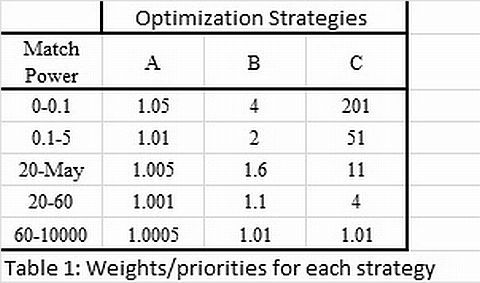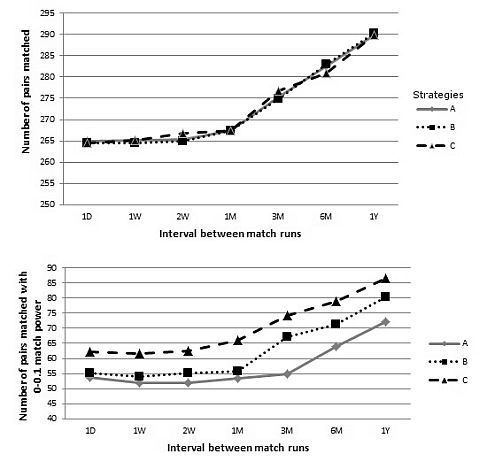Impact of Matching Frequency in Kidney Paired Donation
Operations Management, Sloan School of Management, MIT, Cambridge, MA
Operations Research Center, MIT, Cambridge, MA
National Kidney Registry, NY
Surgery, Stanford, Palo Alto, CA
Economics, Stanford, Palo Alto, CA
Meeting: 2013 American Transplant Congress
Abstract number: 339
Introduction: Kidney Paired Donation (KPD) programs use algorithms to find cycles involving incompatible pairs, and chains, initiated with a non-directed donor. KPD programs generally match a maximum weighted set of pairs in the pool. The goal of this study was to determine how the frequency of running the matching algorithms and the priority given to difficult-to-match recipients influences the number of matches found.
Methods: We ran simulations using dynamic accumulation of 473 incompatible pairs and 30 non-directed donors from 05/24/10 to 5/24/12 in the National Kidney Registry. The optimization algorithm identified the maximum weighted matching with cycles up to 3 pairs and chains. Match Power (MP) of an incompatible pair is the fraction of donors in the database with whom the patient is compatible multiplied by the fraction of patients in the database with whom the donor is compatible multiplied by 10,000. We tested three optimizations strategies (A, B, C) that gave increasing priority to low MP pairs (Table 1), and report the number of matches identified using different match run frequencies.

Results: Match intervals between a day and a month yield the same number of matches (Figure). Increasing match interval to 1 year yielded <10% more matches. Assigning higher priority to low MP pairs increased the matching of pairs with MP<=0.1 but did not change the total number of matches (Figure).

Conclusion: For KPD programs with similar volume to identify more matches than can be identified daily, the match interval must be greater than a month. KPD algorithms should assign higher priority to low MP pairs.
To cite this abstract in AMA style:
Ashlagi I, Anderson R, Gamarnik D, Hil G, Melcher M, Roth A. Impact of Matching Frequency in Kidney Paired Donation [abstract]. Am J Transplant. 2013; 13 (suppl 5). https://atcmeetingabstracts.com/abstract/impact-of-matching-frequency-in-kidney-paired-donation/. Accessed February 25, 2026.« Back to 2013 American Transplant Congress
